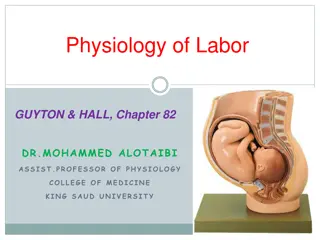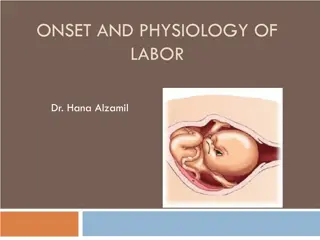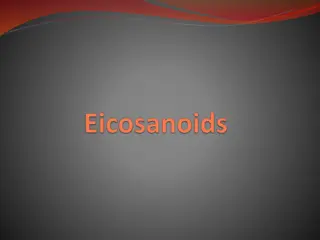Understanding COX Enzymes and Their Impact on Pain and Inflammation
COX enzymes, including COX1, COX2, and COX3, play a crucial role in synthesizing prostanoids like prostaglandins in the body, affecting pain and inflammation. By inhibiting these enzymes, relief from pain and inflammation can be achieved. However, non-selective COX inhibitors may lead to various sid
0 views • 21 slides
Understanding Pain and Analgesics in Medical Science
Pain is a complex sensory and emotional experience linked to tissue damage, with various types of nerve fibers and nociceptors playing key roles in its perception. Pain mediators like bradykinin and prostaglandins modulate sensitivity to pain stimuli. Analgesics, including non-opioid NSAIDs and opio
0 views • 23 slides
Understanding the Physiology of Labor in Pregnancy
Labor, also known as parturition, is the process of uterine contractions leading to the expulsion of the fetus. Various hormonal changes, including increased estrogen levels, play a crucial role in triggering and regulating labor. The progression from a quiescent uterus to active contractions involv
0 views • 29 slides
Physiology of Labor: Onset and Key Hormonal Changes
Labor, or parturition, involves uterine contractions leading to the fetus's expulsion. Factors triggering labor include hormonal changes like increased estrogen and decreased progesterone, which stimulate uterine muscle activity. Telocytes play a role in spontaneous uterine activity, while oxytocin
0 views • 36 slides
Understanding Eicosanoids: 20-Carbon Signaling Compounds in Physiology
These 20-carbon compounds, including prostaglandins, thromboxanes, and leukotrienes, are crucial chemical signals between cells, controlling various physiological processes and inflammation. Arachidonic acid serves as the main eicosanoid precursor, metabolized through pathways involving enzymes like
0 views • 25 slides




